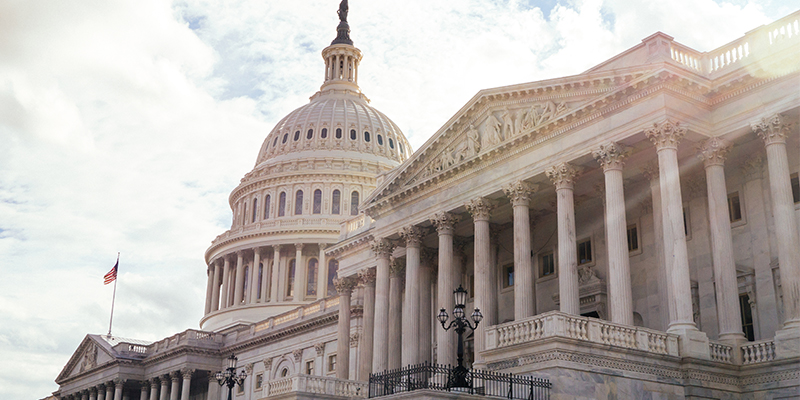By Aquiles Suarez
With Congress set to recess next week for Rosh Hashanah, less than four legislative days remain this month for Congress to agree on a stop-gap funding measure needed to avert a government shutdown on Sept. 30. But with both parties still jockeying for political advantage, a federal government shutdown – if only short term – seems all but inevitable.
House Republicans plan to vote this week on a temporary funding measure, known as a continuing resolution (CR), that would extend current funding levels through Nov. 20, intended to give congressional appropriators more time to come to a consensus on a longer-term funding agreement. The Nov. 20 deadline is just before Congress is scheduled to go on its Thanksgiving recess, making it more likely that legislators will stick to that timeline.
Republicans are insisting on passing a “clean” CR, one that extends current funding without adding any new policy initiatives. However, Democrats in both the House and Senate are insisting on concessions before agreeing to support the short-term measure. Because Senate rules require 60 votes to overcome a filibuster in that chamber, and with Republicans holding only 53 seats, Senate Majority Leader John Thune (R-SD) needs help from Democrats to advance a bill.
As a result, congressional Democrats feel they have leverage to get some of their substantive concerns addressed in the short-term CR. Chief among these are an extension of enhanced tax credits for insurance premiums provided under the Affordable Care Act that are set to expire at the end of this year. A number of Republicans have voiced willingness to extend these tax credits in some form, but feel that issue is better addressed in the longer-term funding negotiations that will be needed before the Nov. 20 deadline. Some Senate Democrats have said they would consider voting for a clean CR, but want to know what the Republicans will propose regarding the ACA credits.
In March, when the most recent CR was needed to avoid a shutdown, Senate Democratic Leader Chuck Schumer (D-NY) broke with House Democratic Leader Hakeem Jeffries, who was advocating that Democrats oppose the funding measure, by facilitating a procedural vote in the Senate supporting the measure. At that time, Schumer was concerned that cuts to federal agency funding by Elon Musk’s Department of Government Efficiency (DOGE) would be left unaddressed, reducing the federal workforce. Nevertheless, he incurred the wrath of much of his Democratic base, which had wanted a confrontation with the Trump White House, despite concerns that a shutdown would adversely impact Democratic spending priorities.
An unforeseen factor that caused additional delay in getting a CR to a floor vote has been the assassination of conservative influencer Charlie Kirk, which led to demands that additional funding be included to increase lawmaker security. Both Democrats and Republicans want additional security funding for judges and elected officials, and bipartisan agreement on the issue could lend some support to passing a negotiated CR.
Another complication concerns additional funding needed for the Federal Emergency Management Administration (FEMA) for hurricane damage assistance for North Carolina resulting from the impact of Hurricane Helene last year. North Carolina Governor Josh Stein (D-NC) this week sent a $13.5 billion funding request to Congress for recovery assistance, highlighting the continued problems faced by residents of that state.
While the request is for a supplemental appropriation – an additional amount dealt with in a separate funding measure – the issue also plays out in the current funding debate before Congress. This is because the White House asked that a “spend-faster” provision be included in the CR that would allow FEMA to spend its full-year appropriation of $22 billion as soon as it is needed, which would allow a faster provision of aid to North Carolina.
Like past government showdowns, members on both sides of the political aisle will say they are convinced that voters will blame the other side. President Donald Trump has publicly said he thinks Republican congressional leadership should “not even bother” to negotiate with Democrats on a funding measure, saying they would not vote for it anyway. For now, both sides may see temporary political upside in holding firm to their positions, but past experience has shown that the public will become impatient and demand a resolution. But in today’s polarized political atmosphere, a shutdown may be necessary if only to show the voting base of each party that their elected leaders put up a fight before compromising.








